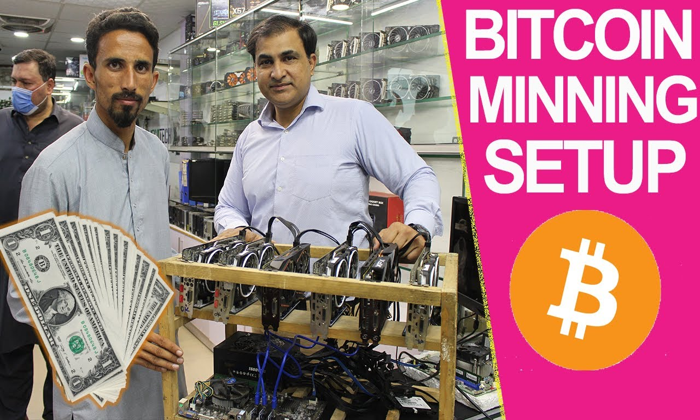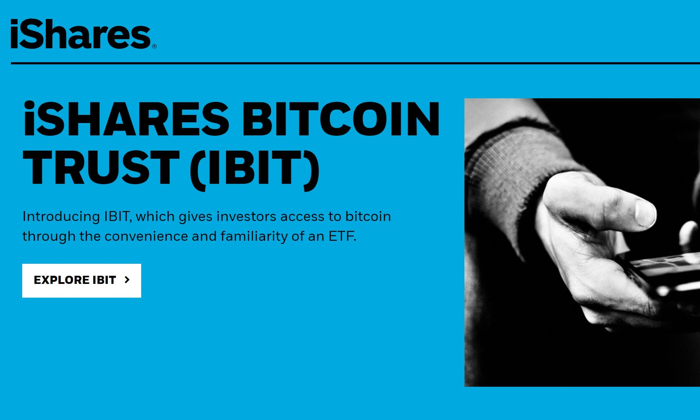Regulated exchanges are critical to ensuring a secure environment for cryptocurrency trading, particularly as altcoin growth accelerates. With the implementation of the Markets in Crypto-Assets (MiCA) regulations, these exchanges have become pivotal in establishing a framework for crypto exchange compliance, enhancing user trust in an ever-evolving landscape. As Bitcoin shows signs of volatility, altcoins are rising to prominence, and regulated platforms are leading this charge by providing essential security measures. By safeguarding transactions and enforcing compliance, these exchanges not only stimulate market confidence but also support blockchain innovation for the future. As the altcoin market flourishes, it’s evident that regulated exchanges are at the heart of fostering a thriving and sustainable crypto ecosystem.
When discussing cryptocurrency trading infrastructure, one cannot overlook the role of compliant platforms, which are now essential in shaping the future of digital assets. These financial hubs, compliant with recent regulatory frameworks, are effectively setting the stage for a robust environment for diverse altcoins. As digital currencies gain traction, the emphasis on regulatory adherence and user safety is fostering growth and stability across the sector. By prioritizing secure trading systems, these reputable marketplace varieties are proving to be the backbone of the blockchain revolution. The clear alignment of regulatory compliance and market integrity is creating a vibrant stage for the next wave of crypto innovation.
Understanding Regulated Exchanges in the Crypto Ecosystem
Regulated exchanges play a pivotal role in the cryptocurrency marketplace, particularly amidst the recent enforcement of the Markets in Crypto-Assets (MiCA) regulations. These platforms not only help facilitate secure cryptocurrency trading but also ensure compliance with rigorous standards set by regulatory bodies. This compliance is crucial; it helps to build trust among users who may have been hesitant to engage with cryptocurrencies due to past volatility and mismanagement within the industry. Regulated exchanges provide the necessary framework that allows traders to invest in altcoins with confidence, knowing that their transactions are secure and that they have legal recourse should anything go awry.
Moreover, as the altcoin market continues to grow, the need for regulated exchanges becomes increasingly apparent. As new tokens are introduced and existing ones strive for compliance, these exchanges serve as gatekeepers to maintain market integrity. They enforce anti-money laundering protocols and consumer protection measures that are essential in fostering a stable trading environment. In doing so, regulated exchanges present a clearer path for future innovations within blockchain technology—ensuring that the industry’s growth potential is not stifled by fears of regulatory repercussions.
The Role of MiCA Regulations in Shaping Altcoin Markets
The introduction of the MiCA regulations represents a significant turning point for the cryptocurrency landscape in Europe. These regulations set clear operational guidelines for exchanges, impacting everything from consumer protection measures to compliance protocols. By mandating rigorous oversight, MiCA aims to cultivate a secure environment in which both investors and newcomers can participate in the altcoin market without fear of abrupt market changes or fraudulent activities. This legislative push not only enhances safety but also positions Europe as a leading hub for crypto innovation, attracting new business and investment opportunities.
As exchanges begin to prioritize compliance with MiCA, the expected outcome is a more mature trading environment where altcoins can thrive. Compliance encourages transparency and accountability within crypto projects, empowering innovative ventures that offer genuine utility rather than those merely driven by speculation. This shift is vital for sustainable growth, as it nurtures a culture of responsibility that helps minimize the risks associated with trading altcoins. As Europe solidifies its position as a regulatory leader, other regions may follow suit, emphasizing the global importance of adopting similar frameworks to ensure a healthy crypto ecosystem.
Leveraging Compliance for Secure Cryptocurrency Trading
With the rise in popularity of cryptocurrencies, the importance of secure trading practices cannot be overstated. Regulated exchanges are at the forefront of providing this security, implementing robust systems that safeguard user assets against theft and fraud. By adhering to established regulatory frameworks, these platforms not only protect their users but also reinforce the credibility of the broader cryptocurrency market. When consumers feel secure in their trading environments, they are more likely to engage with altcoins, which supports market growth and diversification.
This emphasis on security is particularly critical as institutional investors begin to enter the altcoin market. These large entities typically require solid compliance measures and insurance against potential losses before they invest in unconventional assets. As regulated exchanges continue to innovate on their security offerings, they will likely attract more institutional capital—ultimately driving further growth in the altcoin sector. This interaction between regulation and investment is crucial, as it fosters an ecosystem where innovation can thrive under the assurance of safety and stability.
The Future of Altcoins in a Regulated Landscape
Looking ahead, the future of altcoins appears promising, particularly in light of the regulatory advances initiated by MiCA. The altcoin market is set to expand significantly as compliant exchanges provide the necessary infrastructure for new projects to flourish. This growth is underpinned by a growing demand for alternative investments beyond Bitcoin and Ethereum, as traders seek diversified portfolios. Additionally, a compliant trading environment encourages entrepreneurial ventures to explore blockchain solutions that can offer real-world applications—the very essence of the altcoin revolution.
Furthermore, the strategic delisting of non-compliant tokens by regulated exchanges will serve as a catalyst for the altcoin industry, prompting more rigorous evaluations of cryptocurrencies. Only those able to align with compliance standards will succeed in this evolving market landscape. As the community embraces a new era of responsible growth, projects that emphasize accountability are likely to outperform those driven by mere speculation. In this way, regulation not only safeguards but also propels innovation, ensuring that altcoins can play a pivotal role in shaping the future of finance.
Building Trust Through Regulatory Compliance
Building trust has never been more crucial in the cryptocurrency market, especially with the influx of new participants seeking opportunities in altcoins. Regulated exchanges foster this trust by ensuring strict adherence to compliance protocols, thereby creating an environment where users can engage with confidence. As a result, exchanges are no longer just platforms for trading; they have evolved into spaces that prioritize the safety and security of all participants, significantly mitigating risks associated with market volatility and fraud.
The integration of compliance measures into daily operations helps cultivate a culture of transparency, allowing users to make informed decisions. Investors can track the compliance status of various tokens, ensuring that their investments are not only aligned with the regulations but also supported by solid fundamentals. This collaborative atmosphere between investors and compliant exchanges will further enhance trust, laying the groundwork for sustained growth in the altcoin market as it continues to mature.
Innovating Within Regulatory Frameworks
The intersection of innovation and regulation is where the future of cryptocurrency will be forged. As regulated exchanges carve out their place in the market, they have an unparalleled opportunity to spice up altcoin growth while adhering to set guidelines. This balance encourages the development of groundbreaking blockchain projects that are not only compliant but also provide substantial value to users. You have projects that prioritize consumer utility over speculative hype, thus shifting the narrative surrounding altcoins toward more purposeful innovations.
Regulatory frameworks, such as MiCA, are designed to encourage such innovation rather than stifle it. By providing clear guidelines, these regulations give developers the confidence to experiment and push boundaries within a safe space. This collaborative spirit leads to an enriched ecosystem that welcomes diverse crypto projects, ultimately positioning altcoins as crucial players in both traditional and digital markets for the long haul.
Navigating Challenges in a Regulated Crypto Market
While the implementation of MiCA regulations marks a progressive step for the cryptocurrency market, challenges still await exchanges and altcoin projects alike. As they navigate the complex web of compliance requirements, many platforms face the reality that the cost of doing business will increase. Rising operational expenses could limit the ability of smaller exchanges to compete, potentially consolidating the market around larger players who can absorb these costs more effectively.
Nevertheless, this consolidation may also solve some issues, creating a more robust competitive landscape where only the best and most compliant exchanges endure. As compliance becomes increasingly central to sustainable growth, companies will be compelled to innovate constantly to meet regulatory demands. Altcoins that demonstrate agility and the capacity for growth within these constraints stand to thrive, illustrating that challenges can indeed pave the way for new opportunities.
Altcoin Growth Fueled by Institutional Investment
As institutional investments in cryptocurrencies continue to surge, the implications for the altcoin market are immensely positive. Institutional players, such as hedge funds and asset managers, are beginning to recognize the potential of altcoins, seeking exposure as they diversify their portfolios beyond Bitcoin and Ethereum. The seasoned investors, having a keen interest in both bitcoin and altcoin growth opportunities, are influencing market trends significantly as their capital flows into innovative projects that offer distinct advantages and unique use cases.
To attract and retain this institutional interest, regulated exchanges must offer a level of transparency and security that meets the rigorous standards of institutional investors. These exchanges need to provide comprehensive reports and trustworthy information about listed altcoins to ensure that investments are sound. By fostering an environment of credibility and regulation, exchanges can effectively tap into the institution-driven momentum supporting altcoins—ultimately leading to a differentiated market that favors quality over quantity.
The Broader Implications of Regulated Exchanges on Crypto Adoption
The emphasis on regulated exchanges has profound implications for the broader adoption of cryptocurrencies in society. As these platforms ensure compliance with applicable regulations, they play a crucial role in demystifying the cryptocurrency landscape for potential investors and users. The more transparent and secure that trading environments become, the more likely it is that traditional investors will feel comfortable engaging with digital assets—a paradigm shift that could lead to mass adoption.
In addition, as regulated exchanges advocate for secure trading practices and ethical project management, it elevates the conversation around cryptocurrencies to one dominated by innovation and utility. This approach may lead to an influx of educational initiatives, webinars, and content aimed at empowering users to understand the science and technologies behind blockchain projects. Ultimately, as crypto enters the mainstream, it opens the door for applications that have the potential to benefit various sectors ranging from finance to supply chain operations, further embedding it in everyday life.
Frequently Asked Questions
What role do regulated exchanges play in the altcoin growth?
Regulated exchanges are pivotal in facilitating altcoin growth by ensuring a secure trading environment and compliance with regulations like MiCA. They provide the necessary infrastructure that supports legitimate projects and fosters investor confidence, driving sustainable expansion in the altcoin market.
How do MiCA regulations affect crypto exchange compliance?
MiCA regulations establish a comprehensive framework that enhances crypto exchange compliance by mandating anti-money laundering protocols, consumer protection measures, and operational requirements. These regulations ensure that exchanges prioritize user safety and adapt to a regulated ecosystem, ultimately benefiting the overall market.
Why is secure cryptocurrency trading important for regulated exchanges?
Secure cryptocurrency trading is vital for regulated exchanges as it builds trust among users. By adhering to regulatory standards and implementing robust security measures, these exchanges create an environment that attracts institutional investors and boosts the long-term health of the altcoin market.
What innovations are being adopted by regulated exchanges to support blockchain innovation?
Regulated exchanges are adopting various innovations, such as advanced security protocols, user-friendly interfaces, and integrated compliance systems, to support blockchain innovation. These developments not only facilitate smooth trading experiences but also enhance overall market integrity.
What impact do delisted non-compliant stablecoins have on regulated exchanges and altcoin markets?
The delisting of non-compliant stablecoins by regulated exchanges signals a commitment to market integrity, which in turn can foster altcoin growth. While the initial impact may reduce trading volumes, it enhances consumer protection and ultimately strengthens the overall crypto ecosystem.
How are regulated exchanges enhancing consumer protection in the crypto market?
Regulated exchanges enhance consumer protection by enforcing strict compliance with industry standards, implementing robust security measures, and offering transparent trading practices. This creates a safer trading environment and encourages mainstream adoption of cryptocurrencies.
Can regulated exchanges help offset the potential negative impacts of regulation on altcoin growth?
Yes, regulated exchanges can help offset potential negative impacts of regulation by fostering a transparent and compliant ecosystem that supports altcoin innovation. By prioritizing security and regulatory adherence, these exchanges can maintain growth momentum despite the challenges posed by regulation.
What is the future of regulated exchanges in the evolving landscape of altcoin trading?
The future of regulated exchanges looks promising as they adapt to new regulations and market demands. By embracing compliance and innovation, they are positioned to lead the altcoin market, ensuring a stable environment that promotes both growth and sustainability.
| Key Point | Description |
|---|---|
| Regulated Exchanges | They are required to prioritize user safety and regulatory compliance to encourage mainstream adoption. |
| MiCA Regulations | These regulations reshape the crypto landscape and impose operational requirements enhancing consumer protection. |
| Altcoin Growth Potential | Despite Bitcoin’s fluctuations, altcoins are projected to grow significantly, supported by compliance from exchanges. |
| Industry Transition | The crypto industry is at a crossroads, needing to adapt to ongoing regulations to ensure long-term sustainability. |
| Institutional Investment | There is increasing interest in altcoins for diversified exposure beyond Bitcoin and Ethereum, indicating a shift in market dynamics. |
| Market Integrity | Regulated exchanges establish a safe environment for investors which is crucial for the sector’s stability and growth. |
Summary
Regulated exchanges are essential for the current growth trajectory of cryptocurrencies, particularly in the altcoin market. The implementation of regulations such as MiCA underscores the importance of compliance, safety, and stability in fostering an environment where altcoins can thrive. As these exchanges adapt to the evolving landscape, they promise to shape a sustainable future for the crypto ecosystem, creating opportunities for innovation and institutional investment.
Regulated exchanges play a pivotal role in the rapidly evolving cryptocurrency landscape, serving as the backbone for secure cryptocurrency trading and fostering altcoin growth. With the introduction of MiCA regulations, these platforms ensure compliance and prioritize user safety, which is essential for the mainstream adoption of digital assets. As Bitcoin continues to fluctuate in value, the emergence of altcoins backed by regulated exchanges is creating a promising environment for traders and investors alike. Furthermore, these exchanges are not merely transactional spaces, but are becoming vital hubs of blockchain innovation, providing the infrastructure necessary for sustainable market expansion. As the industry adapts to these new regulations, the importance of regulated exchanges will only continue to grow, solidifying their status in the crypto ecosystem.
The world of cryptocurrency trading is witnessing a transformation, with compliant trading platforms at the forefront of this evolution. These structured exchanges, aligned with regulatory standards, are essential in nurturing the growth of alternative cryptocurrencies while ensuring a secure trading environment. Recent policies, particularly the MiCA regulations, are redefining the operational landscape, making it crucial for exchanges to adhere to compliance measures that protect investors. As we navigate this new era, it’s clear that the pursuit of blockchain innovation is interwoven with the integrity and safety provided by these regulated platforms. The ongoing development of altcoin offerings under such a framework highlights the potential for a future where digital assets thrive in a robust, secure ecosystem.















